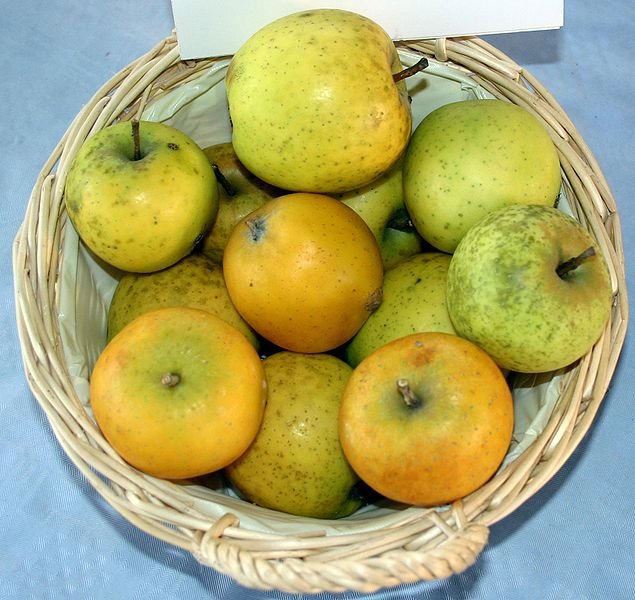Heritage Apples!
On 10th September, Swindon Borough Council and the Friends of Lydiard Park are holding a Heritage Apple Day in the walled garden. Bags of heritage apples will be on sale in the garden pop-up shop as well as Lydiard’s exclusive cider and culinary treats from Victorian apple cake to tarts and toffee apples.
Apples are not the only fruit in the ornamental Walled Garden. There are also pear, greengage, peach, plum, cherry, apricot and fig trees alongside many historic and homegrown flowering plants. All the apple varieties at Lydiard existed before the 1740’s and were planted on dwarf rootstock in the restored walled garden in 2006/7.
Here are some apple facts for some of the varieties you can find in the Walled Gardens!
The Ribston pippin was grown in 1708 from one of three apple pips that had been sent from Normandy to Sir Henry Goodricke of Ribston Hall in Yorkshire.
It is mentioned a number of times in literature, including in Thomas Hardy’s book The Return of the Native and in The Pickwick Papers by Charles Dickens where a character is described as a “little hard-headed, Ribston pippin-faced man.”
The Golden Reinette is an apple that originated in Europe in the sixteenth century. Its main use was to make a sweet and slightly tangy cider but it is also good in pies, jellies and sauces. Alongside the Golden Reinette in the walled garden is another “golden” apple, the Golden Harvey. This is a very ancient variety of apple and was already well known when John Evelyn wrote about it in the early 1600s. It was a popular dessert apple in the Victorian era but fell out of favour in more recent times because it is very small.
The Wyken Pippin is a link between Lydiard and the St.John family and another local house and its owners – Ashdown and the Cravens. The Wyken Pippin has an intense, sweet flavour and was first brought back from the Netherlands in the seventeenth century by the First Earl of Craven, and grown in the orchards of his manor house at Wyken near Coventry. Perhaps the very first Wyken Pippin trees that grew at Lydiard were a gift from the Cravens to the St. Johns as the families intermarried on a number of occasions!
Finally on our list is the Autumn Pearmain, another old apple originally dating from the thirteenth century! These fascinating old varieties and other apples and fruit trees are all waiting to be explored on 10th September!
